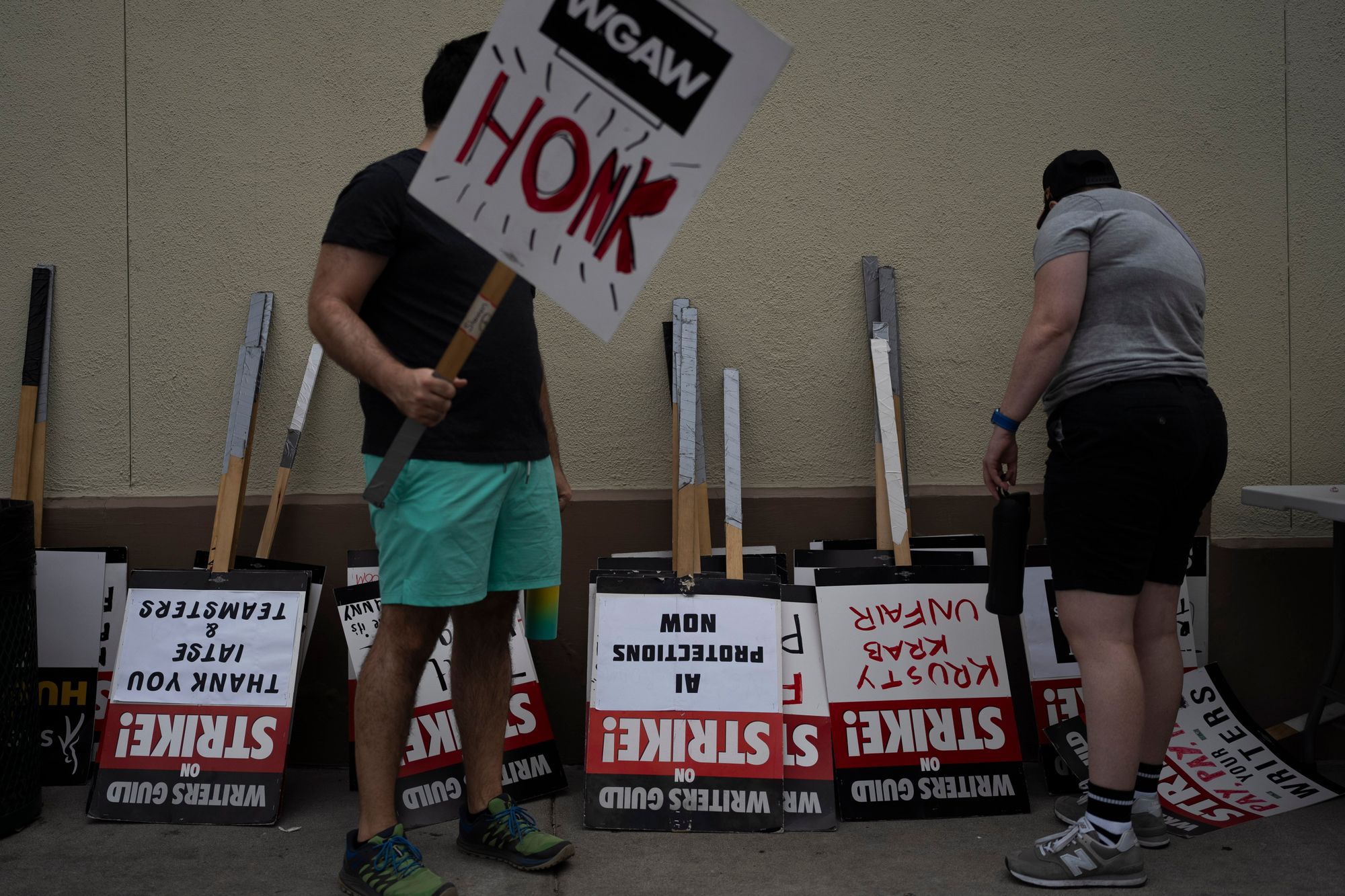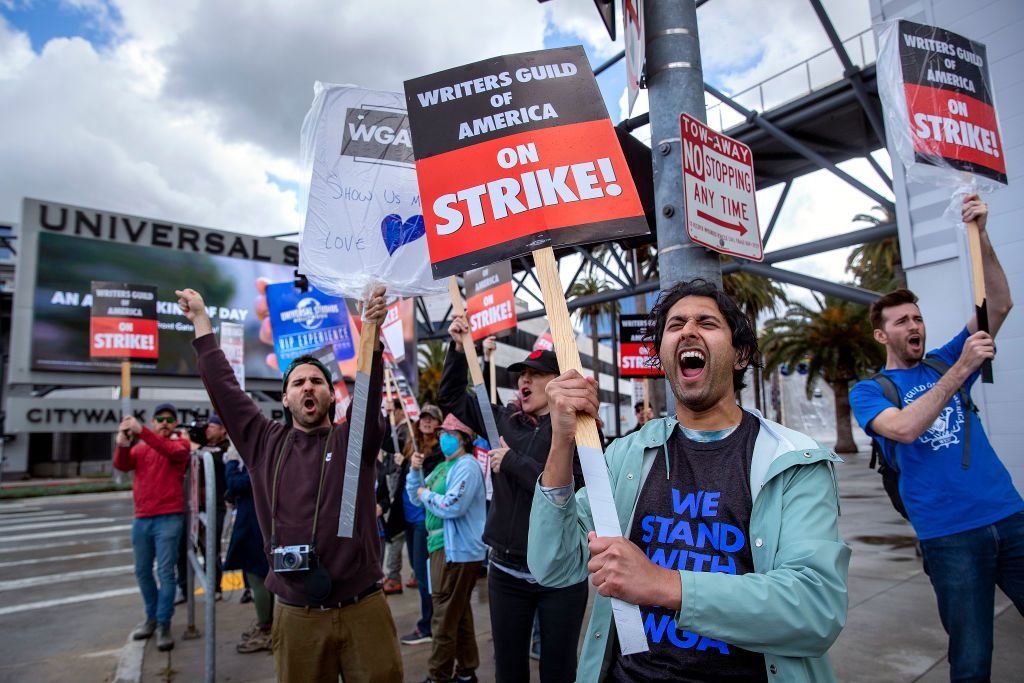In a significant showdown against the capitalist forces that dominate the entertainment industry, Hollywood writers have achieved a tentative agreement after 146 days of an arduous strike. The Writers’ Guild of America (WGA) has been at the forefront of this battle, challenging the exploitative practices that have plagued writers for years. This article will delve into the strike, highlighting the critical issues faced by writers and framing it as a resistance against capitalist exploitation in the Western entertainment world.
The strike unfolded over nearly five months, with the WGA tirelessly negotiating with the Alliance of Motion Picture and Television Producers (AMPTP). As negotiations reached an impasse on a Saturday, the AMPTP ultimately conceded to a mutually agreeable deal on Sunday. While this is a significant step forward, the strike is far from over.
The provisional agreement is currently being drafted and will undergo final contract language scrutiny, a process that may take a few more days. Only after both sides agree on the draft will it be voted upon by the bargaining team to authorize a ratification vote among union members. This complex procedure could extend the strike for weeks before a resolution is reached.

The WGA strike, which commenced on May 2, has had a profound impact on the entertainment industry, costing studios over USD 5 billion in losses. This strike has been marked by the solidarity and determination of the union's nearly 12,000 members, who are fighting for their rights.
Key issues at the heart of the strike include the erosion of writers' residuals due to the rise of streaming platforms, insufficient staffing in studios, and the looming threat of artificial intelligence (AI) replacing writers. Streaming's dominance has led to meager compensation for writers, despite the global reach of their content.
The advent of AI poses a dire threat to the livelihoods of writers as studios reduce their writing staff. Writers demand protection against the loss of credit and the use of AI-generated content as a replacement for human creativity.
While specific details of the draft agreement are yet to be disclosed, the regulation of AI in the creative process could signify a turning point for the industry. Hollywood is entering uncharted territory with AI and similar technologies, and writers are at the forefront of ensuring that these tools do not erode their craft and job security.
The Hollywood writers' strike is not merely an industrial dispute but a resounding resistance against capitalist exploitation in the Western entertainment industry. It symbolizes the fight for writers' rights, fair compensation, and job security in an era of evolving technology. The solidarity and resilience of the striking writers exemplify the broader struggle against the capitalist forces that often prioritize profit over the rights and well-being of the working class.

